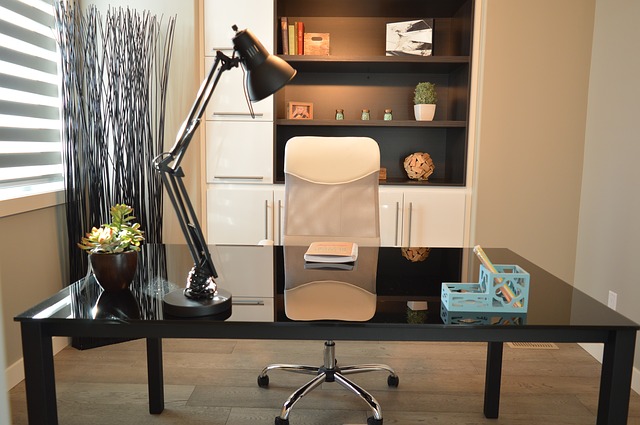Realtors, self employed individuals and small business owners miss out on legal, legitimate tax deductions because their record-keeping has holes in it, or their tax preparer is too lazy and/or too conservative to take advantage of them.
Not taking a deduction for your home office can cost you hundreds, even thousands of dollars a year in income taxes you have to don’t have to pay. Yet many agents and their tax preparers don’t take this “write-off” because they read somewhere it can increase their risk of an IRS audit. Others find the rules too confusing, or figure the tax savings too small … so why bother?
Do you qualify for the Home Office Deduction? And if you do, how can you maximize it so you keep more of your 2016 commissions in your wallet, and send less to the IRS?
Qualifying is a two-step process.
1.) You must use a portion of your home exclusively and regularly for your business.
- “Exclusively” means it’s a room, or a portion of a room, that is used only for business. For example, a dining room where the dining room table is used most of the year for your desk, but on several Sunday’s each year is used for family meals, doesn’t meet the ‘exclusivity’ test. On the other hand, if you use a portion of your dining room for business only—for example, a corner of the dining room where a desk and computer are separate from the rest of the room’s other uses—that separate space would qualify.
- “Regularly” means you use that space continually, year-round, and not just a portion of the year during your busy spring and summer selling months.
2.) The business part of your home must be your principal place of business.
This is the rule that trips up most real estate agents, who think their principal place must be their broker’s office, or wherever they meet with prospects and clients. However, in recent years Congress relaxed the rules in this area. Your home office qualifies as your principal place of business—regardless of where you meet customers, and even if your broker provides your business a second location–if both of the following conditions are met:
- You use it to conduct administrative and managerial activities of your business.
- You have no other office where you conduct substantial administrative or managerial activities
What this means to you is, if you do your logs, contact clients, listen to educational tapes, read business materials,  prepare presentations, and so on, you are conducting substantial administrative activities and qualify for the Home Office Deduction.
prepare presentations, and so on, you are conducting substantial administrative activities and qualify for the Home Office Deduction.
What Deductions Are Available with a Home Office?
There are two types of deductions, direct and indirect.
-
Direct expense is directly related to your home office space (ie., painting your office walls, repairing the flooring in your office space). The direct expense is 100% deductible.
-
Indirect expenses relate to housing costs in general (insurance, electricity, maintenance, condo fees, rent, mortgage interest, taxes, security alarm, etc). These indirect expenses can be deducted based on square footage, or number of rooms. If you use 1 room totally for business, and have 10 rooms in the home, then 10% of your utilities, insurance, etc is deductible. Or just use the square footage method; if your office space is 100 square feet, and the total home space is 2,000 square feet, then 100/2,000 = 5% of your insurance, utilities, etc are deductible.
By the way, don’t make the mistake of thinking you have to own the home to take the deduction; just use your rent instead of mortgage interest and real estate taxes.
How Much Will a Home Office Deduction Save You in Taxes?
Think for a moment what this means to you, if you use 1 room out of a 10 room home with an average sized mortgage:
Mortgage Interest $14,000
Taxes $2,500
Elec/Gas/Water $2,500
Insurance $1,200
Maintenance $1,000
Pest Control $300
POA/Condo Fees $500
Security Alarm $600
Cleaning Service $2,400
Total $25,000
X 10%
Total Deduction $2,500
Assuming a 20% tax rate, a $2,500 deduction in indirect expenses alone can save you $500 annually in taxes.
You could be more aggressive, and easily deduct an additional $2,500 in what tax accountants call depreciation expense (wear and tear on the home). This one move would double your tax savings to $1,000 per year. And this total does not include direct expenses, nor the additional auto expense you can deduct by using your home as your starting point each day, rather than your broker’s office.
My recommendation is to be careful on claiming depreciation, however. Because when the day comes that you sell your home, IRS rules make you ‘recapture’ the depreciation you claimed over the years, and tax it at a 25% rate. This sounds bad, but it may not be. If you’re in the 33, 35, or 39.6% tax brackets—you’re actually coming out ahead!
Anchor On This: A home office deduction can be a tax-deductible gold mine. If you qualify, you should clearly take the deduction. Earning $5,000 every 5 years should convince you that it’s worth the effort. For more information, contact me.
